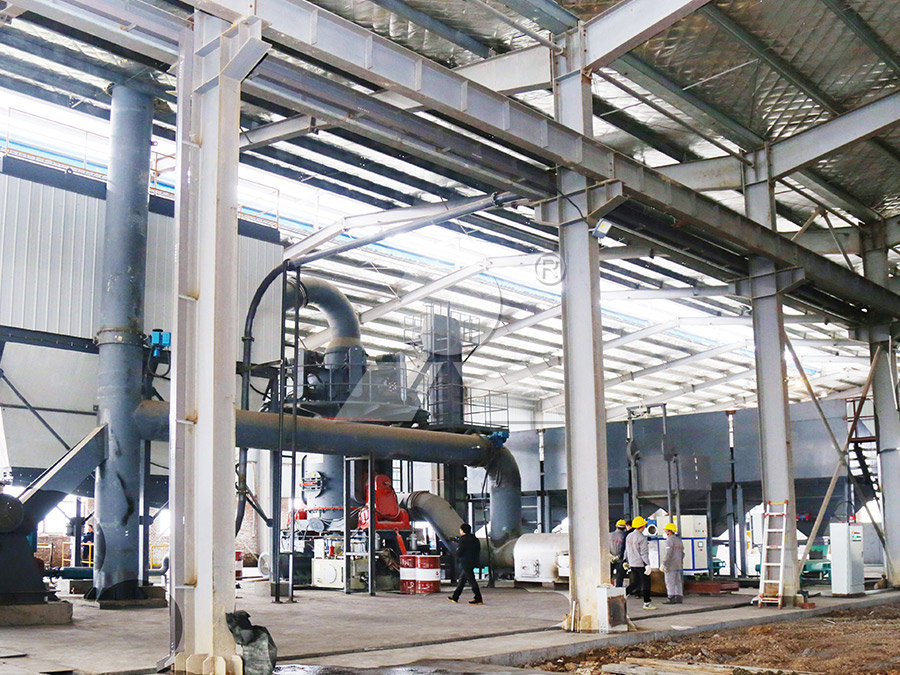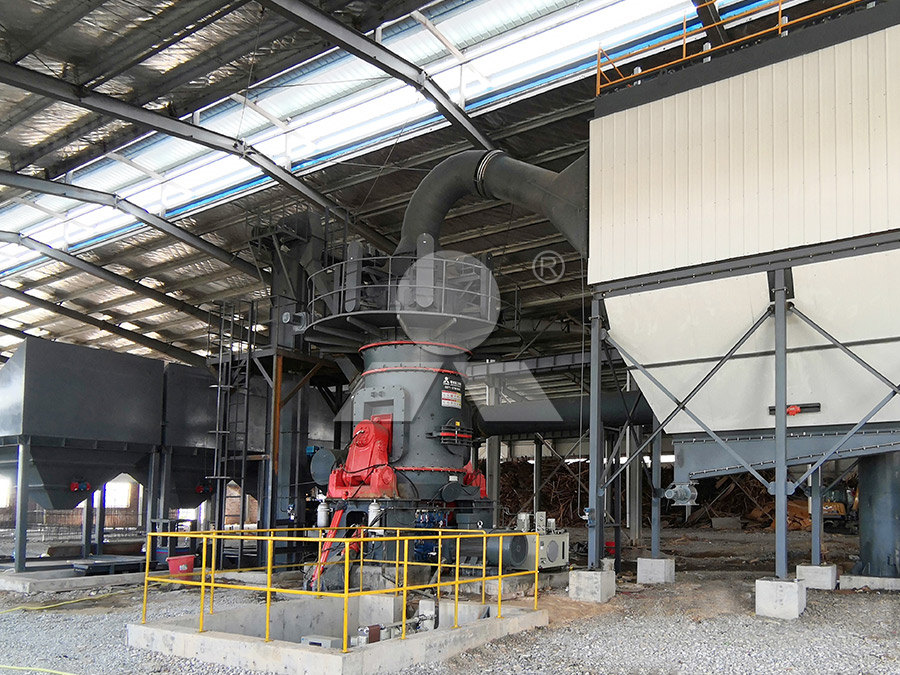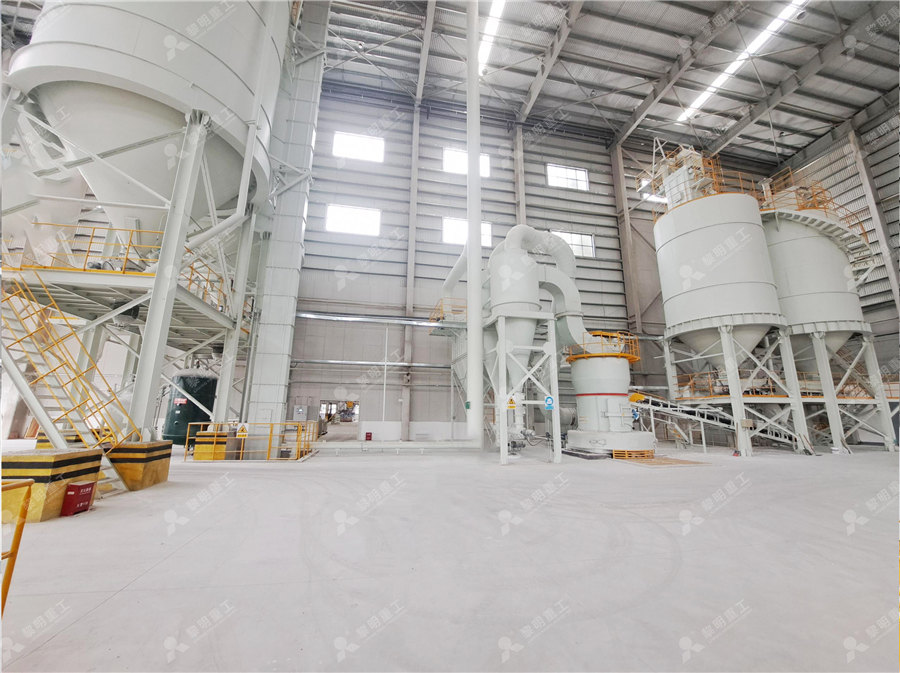
Medium and coarse sand inspection report
.jpg)
Sieve Analysis Of Sand: Procedure, Calculation Result
2020年12月29日 Sieve analysis test of sand is an important test that is commonly used in the construction industry to determine the suitability of sand for different applications The test 6 天之前 Sand gradation is an important reference factor for concrete proportion design, which has a significant impact on the strength and workability of concrete The efficiency of using the Sand gradation detection method based on local samplingFollowing are the tests for sand at construction site: Organic impurities test – this test is conducted at the field, for every 20 cum or part thereof Silt content test – this is also a field Testing of Sand Quality at Construction Site for ConcreteSand—particles of rock that will pass a No 4 (475mm) sieve and is retained on a No 200 (0075mm or 75micrometer [µm]) sieve Sand is further subdivided as follows: • Coarse ENGINEERING CLASSIFICATION AND DESCRIPTION OF SOIL
.jpg)
How to Check Quality of Sand for Construction?
2024年9月9日 Assessing the quality of sand for construction involves a combination of visual inspection, physical tests, and adherence to standards By thoroughly evaluating properties 2022年7月28日 It details what you need to know before you begin compiling a SAND Report, directs you to the SAND Report templates, outlines the order of elements in a SAND Report, SAND Report Guide (Technical Report) OSTIGOV2015年7月6日 Compare the test value with the values given in the following table and you can get an idea about how coarse or fine the sand is Only sand between FM 26 to 29 is 5 COMMON FIELD TESTS ON AGGREGATE TO CHECK ITS QUALITYACI Committee Reports, Guides, Manuals, Standard Practices, and Commentaries are intended for guidance in planning, designing, executing, and inspecting construction This document is ACI MANUAL OF CONCRETE INSPECTION
.jpg)
How To Test The Quality Of Construction Sand
2023年11月13日 Visual Inspection One of the first steps is to inspect the sand visually Look at it closely to check for contaminants or impurities that could negatively impact performance If a sample Certificate was provided it is available for inspection The accuracy of information provided by third parties cannot be guaranteed Water content determined in accordance with PSD BS EN933 Reportxlsm Gresham Gravel Limited NorfolkApparatus for Sieve Analysis Test Sieve Analysis Test Procedure The following is the test procedure for the sieve analysis test of sand, Take the required amount of aggregate sample (for a sand (fine aggregate) minimum of 05kg sample is Sieve Analysis Of Sand: Procedure, Calculation Result2023年10月23日 Sand possesses no plastic behaviour and cannot hold onto water when grading as a medium sand The research aims to determine if currently accepted field identification techniques can be used to assess the expected engineering behaviour and soil texture of naturally occurring soils that contain particle sizes up to approximately 200 mmField tests for the identification of silts Bulletin of Engineering
.jpg)
ENGINEERING CLASSIFICATION AND DESCRIPTION OF SOIL
Sand—particles of rock that will pass a No 4 (475mm) sieve and is retained on a No 200 (0075mm or 75micrometer [µm]) sieve Sand is further subdivided as follows: • Coarse sand —passes No 4 (475mm) sieve and is retained on No 10 (200mm) sieve • Medium sand —passes No 10 (200mm) sieve and is retained on No 40 (425 Our Medium/Coarse Washed Sand (D) has a total sand content of 98%, followed by 2% Silt Clay The freedraining nature of this sand is confirmed by the predominance of medium sand (025050mm) and a lower proportion of coarse sand (05010mm) along with the saturated hydraulic conductivity of 648mm/hrMedium/Coarse Washed Sand (D) Loose Bury Hill2024年6月13日 Understanding ASTM C136 is essential for anyone involved in the construction industry This standard for sieve analysis judges the particle size distribution of fine and coarse aggregates, critical for maintaining building material standards Our article breaks down the nuts and bolts of the test method, discusses its pivotal role in quality control, and outlines the ASTM C136: Fine and Coarse Aggregate Sieve Analysis Certified 2024年9月9日 Work with suppliers who can provide highquality sand with proper documentation and testing reports Conclusion Coarse sand and fine sand have their own uses in construction and landscaping Before choosing one, understand your requirements well Choose the one that best suits your needsCoarse Sand vs Fine Sand: Key Differences and Best Uses
.jpg)
StepbyStep Guide for Grain Size Analysis Geoengineer
Moreover, a typical grain size distribution curve of a medium sand is shown in Figure 2 Table 3: Typical Grain Size Analysis data sheet The Uniformity Coefficient (C u) The uniformity coefficient (C u) expresses the variety in particle sizes of soil and is defined as the ratio of D When using the coarse grade of tape and the reading of the profile falls in the range of 38 64μm (15 – 25 mils), then a second reading must be taken with the X coarse grade of tape If the value of the reading with the X coarse grade is greater than Inspection After Surface Preparation Elcometer2024年6月13日 Fine sand (1⁄8 mm – 1⁄4 mm) Medium sand (1⁄4 mm – 1⁄2 mm) Coarse sand (1⁄2 mm – 1 mm) Very coarse sand (1 mm – 2 mm) Comprehending these classifications is key to ascertaining the sand’s suitability for concrete construction since it can directly influence the strength, durability, and workability of the final productHow to Test Sand Quality at Construction Sites for ConcreteFor coarse grain soil – the size of the particles, mineralogical composition, shape of grains, and character of the binder For fine grained soils – strength, moisture, and plasticity In the preliminary stages, a visual inspection can determine the behavior of the soil when used as component in the construction of a proposed buildingSoil Investigation and Types of Foundations Based on Soil
.jpg)
What Are The Different Types of Sand Used In
4 Coarse Sand: Compared to fine sand, coarse sand has bigger particles Its rough texture makes it popular in landscaping and building Coarse sand particles are typically 20–50 millimeters in diameter They are bigger and more Our gradeD medium/coarse washed sand is a phenomenally costeffective freedraining subsoil for landscaping applications Comprising a total sand content of 98% with 2% silt and clay, the selfdraining characteristics of our Medium/Coarse Washed Sand 07m³ Turf OnlineRapid Sand Filters use coarse sand as a filtration medium to remove fine suspended solids from water with varying levels of turbidity (or ‘muddiness’) It is a pretreatment step prior to a final disinfection process, such as Chlorination (T6), and can be used in all phases of an emergencyRapid Sand Filtration Emergency Wash2023年7月27日 These stations were selected based on visual observations in the field, inspection of unsafe driving conditions and increase the risk of bearing capacity failure Thus, if the literature suggests that both medium and coarse sand are The standard penetration test, stateoftheart report” In Proc, 12th Int Conf A Framework for Assessing the Bearing Capacity of Sandy Coastal
.jpg)
Guidelines on Preparing Ground Investigation Fieldwork and
11 Ground Investigation Fieldwork (GIFW) Report shall be prepared in accordance with Geoguide 2: white, completely decomposed, mediumgrained GRANITE (Loose, slightly silty/clayey light brown, slightly gravelly fine to coarse SAND (MARINE DEPOSIT) MADS Dense, dry, yellowish brown, bouldery COBBLES with much finer material (slightly 2020年8月11日 part of a coarse sand in order to obtain a sand of desired FM (say 18) could be determine approximately by the following formula: Where, F C and F f are the FM of coarse and fine Sieve Analysis and Gradation of Coarse and Fine AggregatesEB 15025 Page 5 of 13 CoarseGrained SoilSoil having a predominance of gravel and/or sandFineGrained SoilSoil having a predominance of silt and/or clayMixedGrained SoilSoil having significant proportions of both finegrained and coarsegrained sizes *Note When applied to gradation tests results, silt size is defined as that portionAN ENGINEERING DESCRIPTION OF SOILS VISUALMANUAL Grading curves are often included in ground investigation reports Results of grading tests can be tabulated using geometric properties of the grading 45% coarse sand, 24% medium sand, 10% fine sand, 3% silt, and is classified therefore as: a wellgraded gravelly SAND Grading and composition Fine soils Consistency limits and plasticity;Soil classification UWE

Soil Mechanics: Description and Classification CED Engineering
FHWA NHI06088 4 – Engineering Characteristics Soils and Foundations – Volume I 4 1 December 2006 CHAPTER 40 ENGINEERING DESCRIPTION, CLASSIFICATION AND CHARACTERISTICSTherefore, fineness modulus of aggregate = (cumulative % retained) / 100 = (275/100) = 275 Fineness modulus of fine aggregate is 275 It means the average value of aggregate is in between the 2 nd sieve and 3 rd sieve It means the average aggregate size is in between 03mm to 06mm as shown in below figureFineness Modulus of Sand (Fine Aggregates) – Calculations, Values8 Group name Group symbol Percent of cobbles or boulders, or both (by volume) Percent of gravel, sand, or fines, or all three (by dry weight) Particlesize range: Gravel—fine, coarse Sand—fine, medium, coarse Particle angularity: angular, subangular, subrounded, rounded Particle shape: (if appropriate) flat, elongated, flat and elongated (PDF) Standard Practice for Description and AcademiaSand Mixture, Coarse Sand : 41 34 29 : Dense Medium Dense Loose : 130 120 90 : 021 028 035 : 27 34 32 : Medium Sand ; 36 31 27 Dense Medium Dense Loose : 117 110 90 : 026 032 038 : 30 35 34 : Fine Sand ; 31 27 25 Dense Medium Dense Loose : 117 100 85 : 032 038 041 : 37 38 34 : Fine Silty Sand, Sandy Silt ; 29 27 25 Dense Medium Dense CHAPTER 3 SOILS Caltrans

Using sediment grain size characteristics to assess effectiveness of
2020年8月19日 Scientific Reports Using sediment Very fine, fine, medium and coarse sand components of PLA/15 samples did not differ for different positions along the slope2024年10月29日 The particle size of coarse sand adds to excellent drainage properties, reducing the risk of waterlogging in the foundation of structures This is why medium coarse sand is used in the bedding layer of foundations to prevent water accumulation 4 Permeability Coarse sand has higher permeability due to its larger grains and lower finenessA Comprehensive Guide to Coarse Sand in Construction2023年9月18日 The inspection report needs to provide a detailed account of the inspection methods employed, Step 4: Sand with Medium Grit Sandpaper Kitchen cabinets often have a thick coating on them, making it difficult for paint to adhere to the surface To remove this coating, use a medium grit What Is A Coating Inspection? Process Best Practices2024年7月1日 Coarse and Its Bulk Density Coarse sand has a higher density, making it ideal for constructing sturdy and longlasting concrete structures Construction professionals highly value silica sand, a type of highdensity coarse sand Its stability, thermal conductivity, and loadbearing capacity ensure the structural integrity of building materialsDensity of Sand: A Guide for Practical Applications Certified MTP
.jpg)
Fineness Modulus of Sand: Procedure, Calculation Result
The fineness modulus of sand is a measure of the average size of the sand particles It is a dimensionless number that indicates how coarse or fine the sand is The fineness modulus is calculated by summing up the cumulative percentages retained on a 2023年12月13日 Through systematic replacements of Rsand with Msand, ranging from 0% to 100% at 25% intervals, using the widely employed M 30 grade, the research evaluated performanceInspection of the mechanical and durability behavior of concrete of size between 0074 millimeters to 475 millimeters Generally Fine sand diameter ranges from 0075mm to 0425mm, medium sand diameter ranges from 0425mm to 200mm and coarse sand diameter ranges from 200mm to 475mm The chemical or mineral composition of sand varies, it depends on the local rock type or sources and conditions, but the mostCharacterization and Standardization of Sand for Laboratory Download scientific diagram Particle size distribution of fine, coarse and wellgraded sand samples from publication: Influence of grain size gradation of sand impurities on strength behaviour Particle size distribution of fine, coarse and well

7 STEPS COMPRISING VISUAL CLASSIFICATION OF
2015年11月29日 Identify the major soil constituent (>50% by weight) using Table 1 as coarse gravel, fine gravel, coarse sand, medium sand, fine sand, or fines Table 1 Grain Size Distribution: Soil Constituent: Size Limits: Familiar 2023年11月22日 Coarse Sand; Coarse sand is characterized by its larger particle size ranging from approximately 2 to 475 millimetres This type of sand is sourced from natural deposits like riverbeds or quarries, coarse sand exhibits Fine Aggregate for Concrete: 3 Classification, stakeholders to use as a planning tool Individual reports, such as this one, were prepared for each airport documenting the results of the pavement inspections A statewide analysis report was prepared based on that inspection year’s airports The airport maps were linked to the MicroPAVER database to allow for geographic information systemTABLE OF CONTENTS Minnesota Department of TransportationIf a sample Certificate was provided it is available for inspection The accuracy of information provided by third parties cannot be medium and coarse SAND Sharp Sand 35 Particle Size mm Passing 100 100 0250 12 0500 315 63 125 100 73 102 3 Percentage Passing Particle Size mm 0920 Title: PSD BS EN933 Reportxlsm Author: ncshwnsv0919Particle Size Distribution to BS EN 9331:2012 by Washing and
.jpg)
Types of Sand Used in Construction by veedubuildingmaterials Medium
2022年6月13日 Sand is a fundamental and essential building ingredient When mixed with coarse aggregates and cement in the proper quantities, it gives constructions the desired strength and longevity We canand texture (coarse or finegrained) of soil b Identify the major soil constituent (>50% by weight) using Table 1 as coarse gravel, fine gravel, coarse sand, medium sand, fine sand, or fines c Estimate percentages of all other soil constituents using Table 1 and the following terms: Trace 0 to 10% by weight Little 10 to 20% Some 20 to 30%EXPERIMENT 7 VISUAL CLASSIFICATION OF SOILS SKYSCRAPERS5 Channel bed material: TYPE – silt/clay, sand, gravel, cobble/boulders, bedrock SIZE – fine, medium, coarse UPSTREAM UNDER BRIDGE DOWNSTREAM STREAM STABILITY 6 Flowline Measurement/ Location From Last 10 Inspections: 7 Vertical StabilityTYPE – silt/clay, sand, gravel, cobble/boulders, bedrock SIZE 2023年1月5日 thors, the sand is sieved at 035 mm and 15 mm (to remove fine and coarse sand), provid ing excellent treatment at an HRT of 8 to 12 h Below, each of these design con cepts is(PDF) Slow Sand Filters for the 21st Century: A Review
.jpg)
mediumcoarse sand翻译为中文例句英语 Reverso Context
The ordinary borehole shall access to pileend bearing stratum (⑤ mediumcoarse sand bed or ⑥ clay bed) recommended by the Feasibility Study Report on Geotechnical Survey of SinoKuwait JV Guangdong Integrated Refinery Petrochemical Project (FS 1052) by no less than 20m, and total depth shall be no less than 15m; The controlled borehole shall access to pileend













